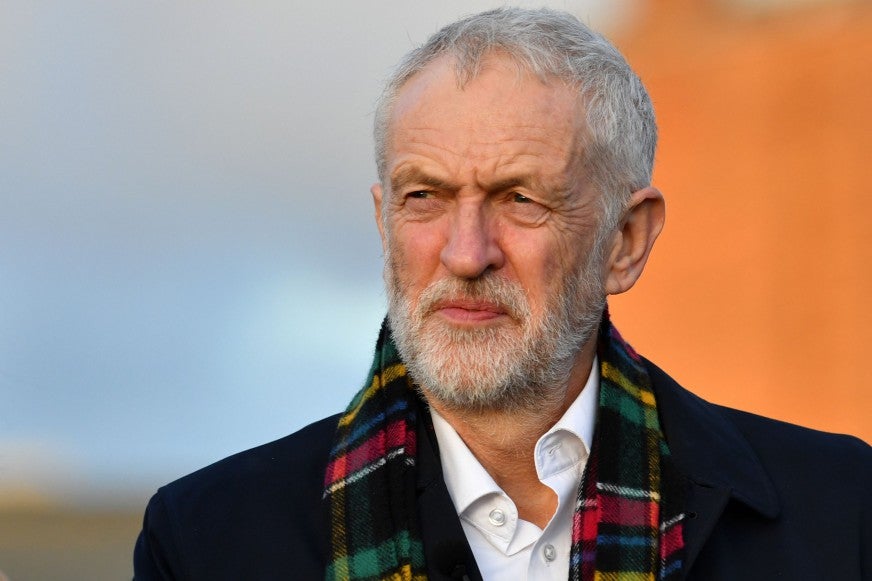Labour antisemitism report: Party broke law by failing to prevent 'discrimination and harassment'
‘This is inexcusable and appeared to be a result of a lack of willingness to tackle antisemitism rather than an inability to do so’

Your support helps us to tell the story
From reproductive rights to climate change to Big Tech, The Independent is on the ground when the story is developing. Whether it's investigating the financials of Elon Musk's pro-Trump PAC or producing our latest documentary, 'The A Word', which shines a light on the American women fighting for reproductive rights, we know how important it is to parse out the facts from the messaging.
At such a critical moment in US history, we need reporters on the ground. Your donation allows us to keep sending journalists to speak to both sides of the story.
The Independent is trusted by Americans across the entire political spectrum. And unlike many other quality news outlets, we choose not to lock Americans out of our reporting and analysis with paywalls. We believe quality journalism should be available to everyone, paid for by those who can afford it.
Your support makes all the difference.Labour broke the law by failing to prevent “acts of harassment and discrimination”, a damning watchdog’s ruling into the party’s antisemitism scandal has found.
The long-awaited report by the Equality and Human Rights Commission says Jeremy Corbyn’s leadership “did not do enough to prevent antisemitism and, at worst, could be seen to accept it.”
The party was responsible for three breaches of the 2010 Equality Act “relating to “political interference in antisemitism complaints”, a “failure to provide adequate training to those handling antisemitism complaints” and “harassment”.
“The Labour Party made a commitment to zero tolerance for antisemitism,” Caroline Waters, the EHRC’s interim chair, said.
“Our investigation has highlighted multiple areas where its approach and leadership to tackling antisemitism was insufficient.
“This is inexcusable and appeared to be a result of a lack of willingness to tackle antisemitism rather than an inability to do so.”
Keir Starmer has been given until 10 December to draft an action plan to implement the EHRC’s recommendations “which is legally enforceable by the court if not fulfilled”.
The new Labour leader has already pledged to implement any findings – but may face questions about his own actions, as a shadow Cabinet member during the scandal.
The damning findings will also increase pressure on him to discipline his predecessor – who had suggesting he might not accept the watchdog’s verdict.
The EHRC says it “found evidence of political interference in the complaints process, with 23 instances of inappropriate involvement by the Leader of the Opposition’s Office”.
“This included LOTO staff influencing decisions on complaints, especially decisions on suspensions or to investigate a claim,” the report says.
“Some decisions were made because of likely press interest rather than any formal criteria.”
Interference “occurred more regularly in antisemitism cases”, which was found to be “indirectly discriminatory and unlawful”.
In response, the Jewish Labour Movement spoke of its “relief”, saying: “Since 2015, we have consistently warned the Labour Party about a deepening casual culture of anti-Jewish racism, that saw Jewish Labour members and activists harassed and discriminated against.
“Instead of listening to our growing concerns over the scale of the challenge, we were told that this racism was imagined, fabricated for factional advantage or intended to silence debate.
“Today’s report confirms that our voices were marginalised and our members victimised.”
At a press conference, the watchdog said that, in the cases of Ken Livingstone and Pam Bromley, a councillor, Labour was legally responsible for their antisemitic conduct because they were acting as agents of the party.
The conduct of the pair included “using antisemitic tropes and suggesting the complaints of antisemitism were all fake or smears”.
However, these two cases amounted to “the tip of the iceberg”. There were 18 cases, involving councillors, election candidates and constituency office-holders, where it was “borderline” whether the party had legal responsibility.
“If the party really is committed building a culture of zero tolerance towards antisemitism, it must make clear that any antisemitic conduct by members won’t be tolerated and deal with it regardless of whether or not the party is formally legally responsible for it,” the EHRC said.
The report did not rule on Mr Corbyn's individual actions because it had focused on any unlawful acts by “the Labour Party as a whole, the watchdog said.
“The blame for the antisemitism in the Labour Party cannot be placed on one person,” said Alasdair Henderson, its lead investigator.
“We looked at the party as a whole, not individuals in isolation and went beyond the role of Jeremy Corbyn. We looked at how it's handled across the party.”
Asked what Mr Corbyn should do, Mr Henderson said: “It's really a matter for him how he responds.”





Join our commenting forum
Join thought-provoking conversations, follow other Independent readers and see their replies
Comments